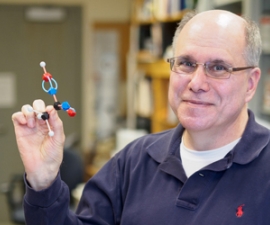

Research Bio
Gary Firestone is a Professor of the Graduate School in the Department of Molecular & Cell Biology. Our overall goal the Firstone Lab is to characterize the cell signaling pathways that inhibit the uncontrolled growth of epithelial-derived tumor cells, the cell type of most human cancers. Molecular, genetic and cell biological experimental strategies are being utilized to explore the mechanisms by which extracellular signals (such as steroid hormones, growth factors and certain dietary compounds) coordinately regulate the proliferation and cell-cell interactions of reproductive tumor cells.
Research Expertise and Interest
cancer, steroid hormones, molecular endocrinology, tumor biology, growth factors, dietary compounds, tumor cells, glucocorticoids
